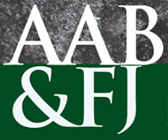Abstract
Purpose: This study aims to capture the impact of firm-specific and macroeconomic variables on the capital structure of Indian companies from 2009-2021.
Design/Methodology/approach: We employ the Generalized Method of Moments (GMM) as the main estimation technique and establish robustness through a panel Tobit model.
Findings: The sectoral level analysis provides evidence for the heterogeneous impact of the determinant variables on the firms' leverage ratios. The results reveal that the firm-specific variables, specifically asset tangibility, effective tax rate, non-debt tax shield, net worth to total asset, firm size, net working capital ratio, liquidity, and macroeconomic variables, including foreign investment, economic growth, government borrowing, and interest rate exhibit a significant influence over capital structure.
Research limitations/implications: Our study provides vital implications for manufacturing companies' finance managers to evaluate the factors affecting their capital structure. From the findings, we recommend that managers of different sectors prioritize firm-specific factors while making decisions for capital structure. Additionally, policymakers could utilize our results to determine the behaviour of macroeconomic determinants in policy formulation and amendments.
Originality/Value: The sector-level analysis and the utilization of both firm-specific and macroeconomic variables in our model yields unique findings and recommendations to managers and policymakers.
Keywords: Capital Structure, Tobit Model, Pecking-order theory, GMM, Trade-off theory
How to Cite:
Yadav, A. K., Panda, A. K., Smark, C. J. & Hegde, A. A., (2024) “The Heterogenous Impact of Capital Structure Determinants: Evidence from an Emerging Economy”, Australasian Accounting, Business and Finance Journal 18(4), 143-164. doi: https://doi.org/10.14453/aabfj.v18i4.09
Rights: free_to_read
Downloads:
Download PDF
596 Views
412 Downloads

